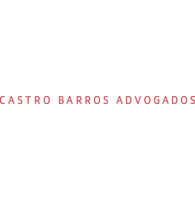
Brazil Teams 2019

| Ajinomoto do Brasil




Ajinomoto do Brasil
| Ajinomoto do Brasil
The legal team of the Japanese multinational food and chemical corporation Ajinomoto do Brasil brings together all of the company’s professionals involved in legal, intellectual property and government relations into...
The legal department is divided into the following areas: legal, intellectual property, government relations and compliance with 16 lawyers in total. The legal team is structured as follows with an IP sub-team of two lawyers, a government relations team with two lawyers and compliance with three. Some lawyers work in more than one area. The key individuals are Ricardo Sasaki, Marsal Villas Boas, Leandro Barbosa, Pâmela Hirai and Angelita Risso. Moreover, as Ajinomoto do Brasil is also the regional headquarter of Latin America, Ajinomoto do Brasil’s legal team provides legal support and advice to the affiliates of Group Ajinomoto in Latin America (Peru, Colombia, Argentine, Panama, Mexico).
The PRELI programme has been one of the company’s most important and successful programmes because it is contributing to shift the mindset from the “culture of litigation” to the “culture of conciliation”, not just inside the company but also outside (law firms, lawyers, stakeholders). It is contributing to the judiciary to reduce the number of litigations in Brazil (“Brazil cost”), contributing to reducing the cost of the company and contributing to increasing the company’s good reputation in society.
As examples of practical measures, we can mention:insertion of the clause of non-litigious mechanisms to solve conflicts in all contracts of Ajinomoto do Brasil; use of the Permanent Nucleus for Conflict Resolution by Methods of Consensus of the Court of Justice of the State of Sao Paulo, to solve legal issues; use of the private chambers of mediation, conciliation and arbitration providing excellent customer service to increase customer satisfaction and reduce the risk of complaints and use the government website “consumidor.gov.br” to solve customer complaints.
In 2018, Ajinomoto Headquarter in Japan recognised the Project PRELI as one of the most important projects within all Ajinomoto Group affiliates worldwide. The PRELI Project was awarded because it generated economic and social value for the company and society.
Another important result of PRELI is that the Court of Justice of the State of Sao Paulo recognised the contribution of the legal team of Ajinomoto do Brasil to reduce the huge number of lawsuits by adopting alternative conflict resolutions. Ajinomoto do Brasil has been certified for the third consecutive year as a “Company Friend of Justice”.
We firmly believe that “social skills” are very important to the success of the legal team and we embrace this concept in our selection process. When we select a lawyer for a job in the legal department, we hire a person who has good communication, teamwork, adaptability for changes, ethics and integrity, and effective critical thinking to find solutions.
The unification of such functions brought a closer and connected relationship of colleagues from affiliates, plants, branches, contributing to more integration in the company. It also brought an increase in efficiency, productivity and time saving. Some benefits for the company include: better visualisation of a complex problem involving different areas; centralisation and standardization of the whole process, avoiding double work; deeper involvement in research and production activities; improved communication flow; a faster decision making process; reduction of cost and prior knowledge about the movements the government actions.
The legal team use the following “legal tech” products to gain time, efficiency, certainty, security and preserve the environment, reducing significantly the usage of paper in the company. The team uses software to control and manage the lawsuits and administrative proceedings, “SAP Ariba” for procurement and contracts, to receive diary updates from the courts and government agencies, to sign documents by electronic and digital means, to follow legislative changes, block chain for some government documents and block chain for contracts (under evaluation).
Yes, absolutely. We think it is very important and essential for the legal team’s success to have a well-diversified legal team with different genders, ages, religious beliefs, ethnicity, backgrounds and experiences that can contribute to solving a problem from different angles and perspectives.
By participating more actively in the core business decision, the legal department can help them to avoid risks or mitigate them, leveraging the company’s profit and good reputation in society. The team could perform a legal risk assessment before launching a new product, legal DD in M&A transactions, prepare safe and balanced contracts for business areas, provide legal advice for business areas related to anticorruption law violations, provide legal advice for business areas related to antitrust law violations, register trademarks and patents at the Brazilian Patent and Trademark Office, and comply with government requirements to start a new business.
Recently, in Brazil two new laws were issued: the General Data Protection Act and the Economic Freedom Act. These laws will require companies to spend money, time and great effort to comply with them. Currently, Ajinomoto do Brasil’s legal team has participated in many courses, seminars and workshops to better understand and acquire the knowledge necessary to implement it in the company.